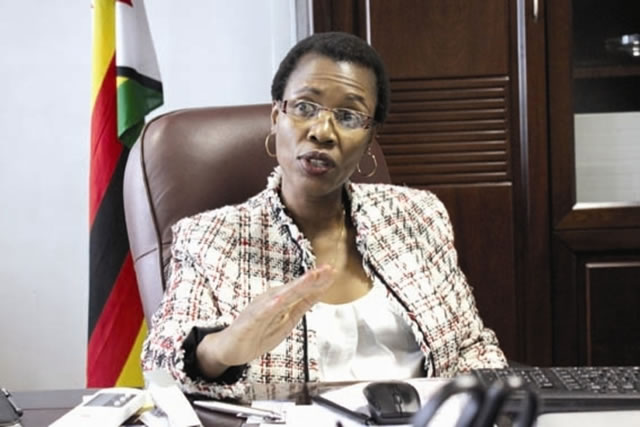EDITORIAL COMMENT : Civil servants must reconfigure thinking

The return to normal shifts by all nurses in the public sector, with modest groups in central hospitals being the last to do so, is very welcome, since the health of the vast majority, those who cannot afford the very expensive private care now on offer, was at serious risk.
But there are a number of lessons that everyone need to learn, on both sides, and a number of policies that need to be settled as the general normal to avoid any further cycles of industrial action that the public health sector, in particular, has seen over the years.
The first point to note is that the Government has been negotiating pay scales, and over this year raising pay when possible even without the final agreement last month, in good faith.
The only condition has been affordability. While all Government employees, including health workers, will be paid the maximum possible, that maximum is set, as a total monthly spend for the payroll in any case, by the Government’s revenue, that is very largely what the taxpayers pay.
From that tax revenue, there are many demands besides pay. But as Government budgets even in the new dispensation make clear, staff costs are the largest item with capital expenditure in second place.
All the other bits and pieces, from fuel for vehicles to desks to stationery combined come in third. This is roughly how private sector corporations budget, although they also include a slice for profits and dividends that the Government does not include in its Budget.
Like their colleagues in the private sector, Government employees have to accept the concept of “ability to pay” when it comes to pay scales. This is the limiting factor. It also requires a different approach from staff associations. The old pressures of industrial action forcing a Government to start up the printing presses to create money out of thin air to meet a payroll were what helped lead to the hyperinflation disasters that have inflicted our economy over the years and made sure that we could never have viable permanent rises in our standards of living.
Each rise not backed by creation of real wealth among the taxpayers simply led to the next crash.
The second point is the rather peculiar Zimbabwean belief that workers on strike are entitled to be paid. This is weird. The standard, throughout the world, is that even when industrial action is totally legal, so no disciplinary action can be taken against workers absenting themselves and jobs are preserved, the striking workers are not paid.
To get round that, unions in many countries build up strike funds from their union membership dues so that they can pay strikers in legal industrial action an allowance.
No union, for example, in most of the European Union would dream of even getting as far as a strike ballot without being able to make it clear to members the size of that allowance and how long it could be paid. No union in Zimbabwe has such a fund.
Zimbabwe’s private sector, after a lot of hesitation in the 1980s, has adopted this standard procedure, which is one reason why private sector industrial action is now so rare, and far more positively why when workplace disputes do arise the relevant national employment council is called in, or the Department of Industrial Relations, or both.
Very often when things reach a certain point, having a neutral person who can listen to all sides, point out in each area where there is unfairness or unacceptable behaviour, and then offer suggestions can clear the air and allow normal employer-employee talks to proceed.
So one possibility in the public sector is for the Apex Council, which groups the Public Services Board and the staff associations, should seriously look at creating a small industrial relations unit, whose staff are paid, like those of the national employment councils, by exactly equal employer and employee association contributions, forcing them to be totally neutral and able to intervene when required in local disputes.
The second area where staff associations should be active is ensuring they read the national budgets, the mid-term fiscal policy reviews and the monthly financial statements that the Ministry of Finance and Economic Development is now by law required to publish.
They might need to hire, probably between them, a couple of part-time quality economists who can help them tunnel down into the data. But going into negotiations knowing revenue trends, knowing expenditure levels and the like means the associations can contribute actively in the same real world and if they can come up with creative ideas within the limits and the parameters, they should be listened to seriously.
One area where detailed knowledge of Government budgets can lead to healthy debate and sensible contributions would be in parts of the capital budget, especially those parts dealing with staff housing, other State housing schemes, and staff transport.
Staff associations may well have good ideas of where new Government housing should be built, to what standard since that in turn sets the rents, and how it can best be allocated fairly. Even some detailed contributions into routes and times of Government staff buses could improve staff transport significantly, with users putting in their input.
Government workers also need to start thinking who they elect to run their associations, represent them, and when necessary have the strength of character to tell them what is and is not possible. There has been a trend for well-spoken confrontationalists to be elected, and people who might well have political ambitions.
Obviously, workers want someone who will defend their interests, know their interests and be able to argue strongly in favour of these interests. But they also need to be able to go further, to assemble and generate creative ideas, to burrow into the national data, and be able to suggest and press for viable and practical solutions to problems faced by their members.
Some solutions might not cost the Government much, or anything at all. But decent bus services for night-shift nurses is as important as pay scales. Being able to present tables of what percentage of nurses at each hospital are housed in staff flats at the hospital will help decide where the next two blocks of flats must be built to ensure fairness.
Even the creation of properly run cooperative stores for basic groceries in a rent-free hospital storeroom, to make the salary dollar go further, should be on association agendas. Leadership has to go far beyond what has been the case so far.
Most staff associations represent well-educated and smart professionals, and so an association should be able to be in constant consultation with members to make use of that talent, looking for bright ideas and shifting the many they should get to find the best and most practical, and members should be looking for their smartest and best to lead them.











Comments